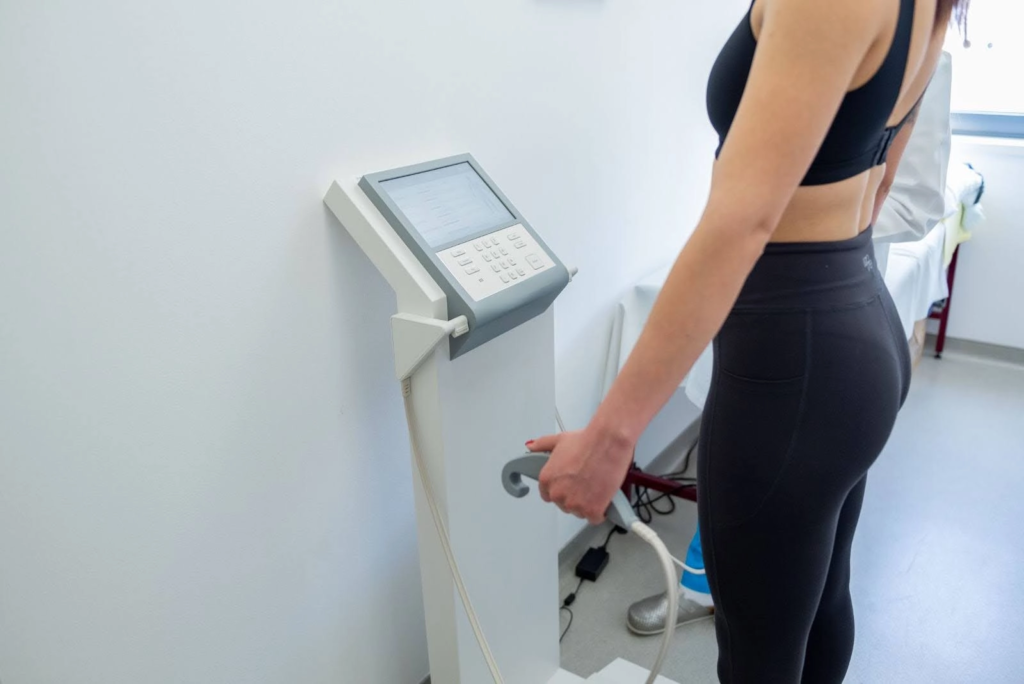The Ultimate Guide to Choosing the Best BMI Machine for Your Hospital
Accurate health measurements in hospitals and healthcare facilities are necessary for patient care. One of the most important tools for assessing a patient’s health status is a BMI machine. Body Mass Index (BMI) is one of the most important indicators that doctors and other healthcare professionals use to determine whether a patient is underweight, of normal weight, overweight, or obese. It is, therefore, essential to choose the right BMI machine for your hospital to ensure accurate and reliable readings.
This guide will give you an idea of the significance of BMI measurement, the major considerations in the selection of a BMI machine, and how best to make your choice for your healthcare facility.
Why is a BMI Machine Essential in Hospitals?
A BMI machine is an important diagnostic tool in hospitals because it provides quick and accurate weight and height measurements to calculate a patient’s BMI. It helps medical professionals in several ways, including:
- Early Detection of Health Issues: Monitoring BMI can help identify obesity, malnutrition, and other weight-related health concerns.
- Patient Monitoring: Regular BMI tracking is crucial for patients undergoing treatment for conditions like diabetes, cardiovascular diseases, and metabolic disorders.
- Health Examinations: BMI data are part of a general physical examination in hospital-based health screenings, pre-operation and routine examination of every patient.
As these play a fundamental role in a hospital, the correct selection of a BMI machine forms the basis for an efficient method of managing and maintaining patients.
Key Features to Consider When Choosing a BMI Machine
In choosing a BMI machine for your hospital, there are considerations that have to be taken into account to ensure efficiency, durability, and accuracy. Below are some key features to look for:
1. Precision and Accuracy
A BMI machine’s accuracy is utmost in ensuring the proper diagnosis of patients. A highly precise machine warrants consistent and correct measurement, thus decreasing errors in diagnosis. The machine should come with advanced sensors that make certain exact height and weight readings.
2. Digital vs. Analog
Hospitals today prefer digital BMI machines over analog models because they allow:
- Easy readability with clear digital displays
- Automatic BMI calculations to reduce manual work
- Greater precision compared to traditional analog scales
3. Weight and Height Measurement Range
Different hospitals cater to various patient demographics, from children to adults and elderly individuals. Ensure the machine you choose can accommodate a broad weight and height range to serve all patients efficiently.
4. Inbuilt Printer for Reports
Some of the advanced BMI machines have an inbuilt printer, which helps hospitals generate instant reports of patient data. This is useful for record-keeping, diagnosis and counseling of patients.
5. Strong and Durable Construction
Hospitals use BMI machines very frequently. So, durability is a major factor. Machines made of high-quality materials with a robust platform can withstand continuous use and ensure long-term reliability.
6. Easy to Use
A user-friendly BMI machine with an intuitive interface is sure to improve efficiency when multiple tasks are performed at one time by medical staff. Some of the features include automatic height detection, touchscreen operation, and voice guidance that will make the process easier.
7. Integration with Hospital Systems
In the contemporary healthcare system, digital record-keeping is vital. Select a BMI machine that enables data upload to hospital management systems, electronic medical records (EMRs), or cloud storage for smooth patient data handling.
How to Choose the Best BMI Machine for Your Hospital
To help you make the best decision for your healthcare facility, here are some simple steps:
- Evaluate Your Hospital’s Requirements
- Determine the number of patients you see every day.
- Determine if the machine will be used for general check-ups, specialized treatments, or research.
- Determine Budget
- Compare different models and choose one that offers the best value for your hospital’s budget.
- Check Compliance and Certification
- Ensure the machine meets medical standards and certifications for hospital use.
- Read Reviews and Seek Recommendations
- Look for feedback from other hospitals and healthcare professionals about their experiences with different BMI machines.
Conclusion
The selection of the right BMI machine is important for providing effective health assessments and proper patient care in hospitals. A good machine assures accurate measurement, easy-to-use features, and longevity. PHOENIX offers the latest BMI measurement solutions to cater to the demands of innovative health institutions, so accurate BMI measurement is possible, resulting in better patient recovery.
The Ultimate Guide to Choosing the Best BMI Machine for Your Hospital Read More »



